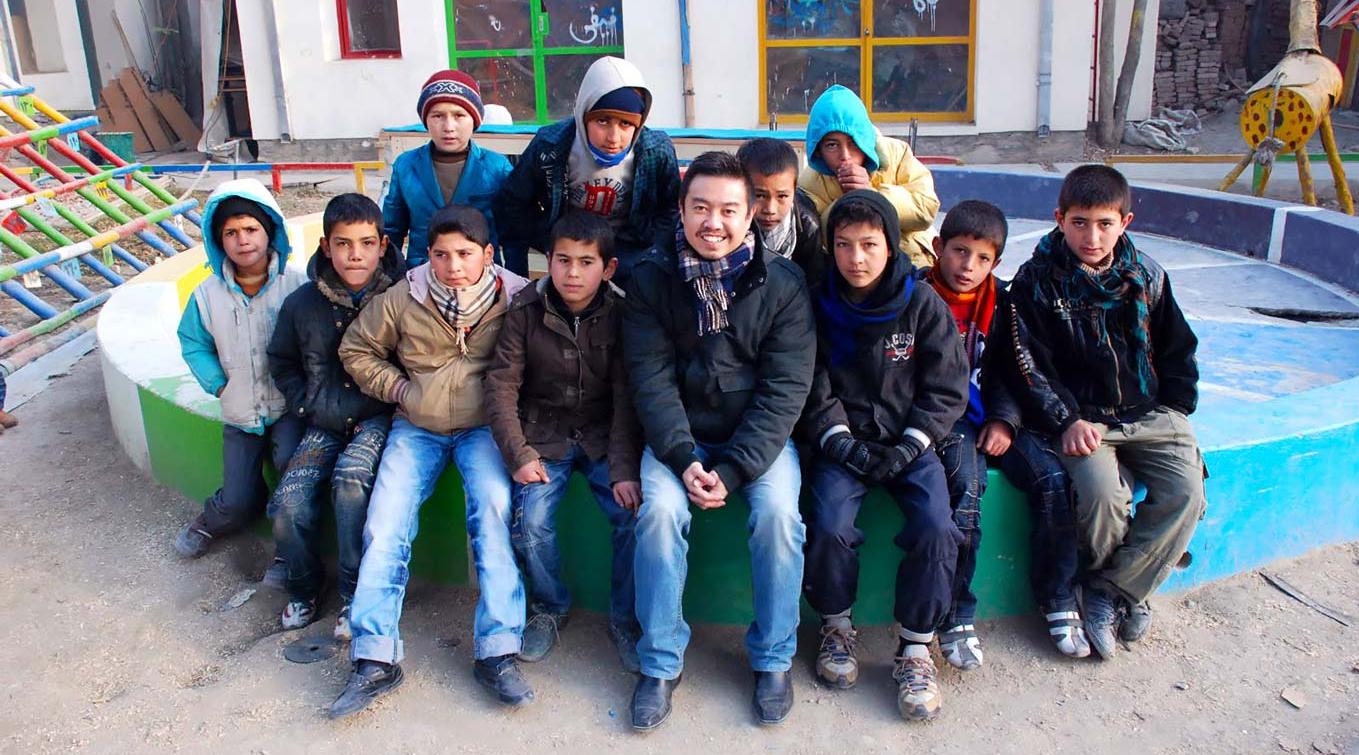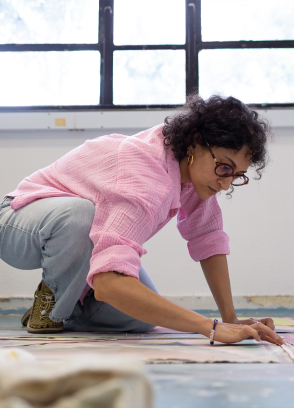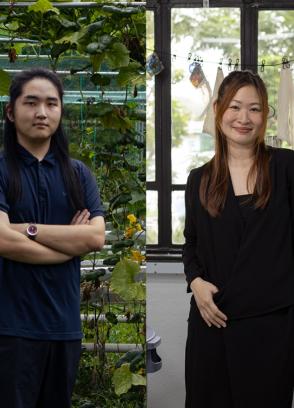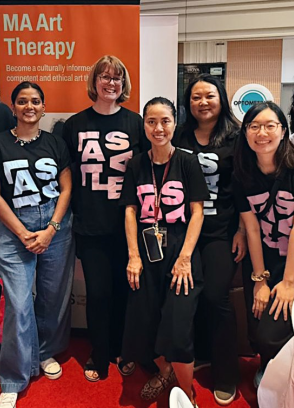13 September 2018
More than a decade ago, it was already clear that while the Science, Technology, Engineering and Mathematics (STEM) sectors remained important, the burgeoning Creative industries was one not to be ignored. To seed more creative manpower that will help steer the nation in the coming future, the Ministry of Communication and Information established the Creative Industries Scholarship in 2006.
Amongst its first recipients was Edmund Chow, who was then set to embark on his graduate studies in Educational Theatre at New York University. Years on, he has since completed his doctoral degree at the University of Manchester, and joined LASALLE's ranks as the Programme Leader of our MA Arts Pedagogy and Practice programme.
In his words, "This postgraduate programme at LASALLE feels like a homecoming as it weaves all the different strands of my professional and artistic energy into a single tapestry."
Right there in its name, LASALLE's MA Arts Pedagogy and Practice programme is for artists and educators who seek to harness the potential of the arts to nurture creatives of tomorrow. From encountering a range of educational methodologies to exploring the artistic intersections of different disciplines, candidates will emerge with a critical self-awareness on what it means to unlearn and relearn knowledge, as well as to facilitate an experience steeped in the arts.
As an accomplished applied theatre director and NIE-certified educator who has dedicated his career to opening the imagination and thinking capabilities of youngsters and adults alike, Edmund brings much insight to the table. His rich and varied experiences include implementing theatre as part of the curriculum at Kaki Bukit Centre Prison School, assisting psychodramatists in their therapy work in the USA, and managing a radio drama centered on women's empowerment in Afghanistan.
Edmund's doctoral research took him to Afghanistan, where he observed critically the impact and function of theatre arts as embodied practices in the post-Taliban period. With many local actors struggling to make their voices heard, will taking drama out into public spaces encourage a different form of education and entertainment?
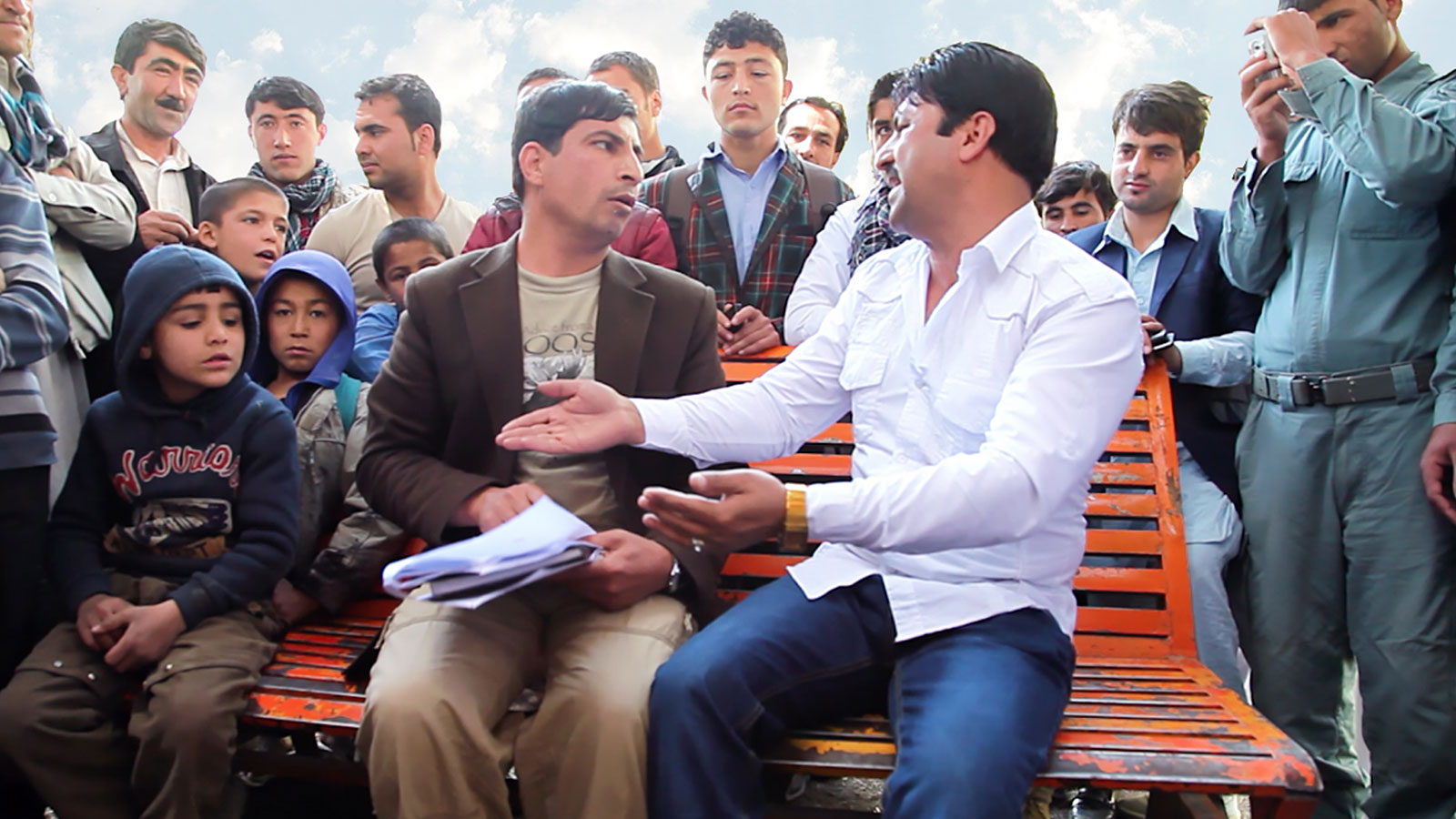
Image: Two actors are seen improvising a scene in a park in Kabul which attracted a huge enthusiastic crowd.
Edmund appears to be a man on a mission, trying to use his art practice to foster capacity building in pockets of society wherever he may be. Upon reflection, though, he noted: "I did not wake up from bed one day and suddenly exclaim my purpose in life. Neither was it a "calling", as some people might term it, as I did not seek a higher purpose and receive a revelation."
If he had to pin it down, the pivotal moment was when he witnessed his students at Kaki Bukit Centre taking the curtain call on stage at the inaugural Yellow Ribbon Project event. The process of unlocking the emotional chain within and gaining personal insight through drama, as well as the feedback and praise from the public at the end of the performance, had such a transformative effect on Edmund's students that he was, likewise, touched.
"I began recognising theatre as part of a therapeutic and rehabilitative platform." He recounted, and continued. "By engaging with the body in creative exploration, people are able to see things in new perspectives and pick up soft skills. Such is the ability of the arts to facilitate learning and self-discovery."
The image I have likens arts education to is a river that overflows its banks. There are many tributaries in terms of art forms and pedagogies. Yet wherever we flow, we forge new terrains and make arid landscapes more habitable by forming communities, and by nourishing the human soul that seeks for connection and aspiration.
From an adolescent then who loved dramatic literature, recalling fondly being hooked on The Monkey's Paw by W.W. Jacobs, to an artist-educator now who employs experiential pedagogies such as storytelling and improvisation to help individuals in schools, prisons and leadership management gain clarity, Edmund has travelled a long way and is looking forward to his next adventure at LASALLE.
"The transdisciplinary and cross-cultural setting of LASALLE is both unique and exciting. Specifically in our MA Arts Pedagogy and Practice programme, when a visual artist works with a dance teacher, or an actor with a museum curator, the conversations become highly enriched. This then feeds into different ways of knowing and teaching," he observed.
As an educator that embraces imagination, creativity, the humanities and aesthetics, Edmund's leadership and contribution to Singapore's educational sector is highly valued. The testimonials by his many students attest to such.
When asked about his hopes for arts education, he shared: "The image I have likens arts education to is a river that overflows its banks. There are many tributaries in terms of art forms and pedagogies. Yet wherever we flow, we forge new terrains and make arid landscapes more habitable by forming communities, and by nourishing the human soul that seeks for connection and aspiration."
Cover image: Dr Edmund Chow, pictured centre, with children from the Afghan Mobile Mini Circus for Children, a non-profit organisation in Kabul that empowers the young and inculcates soft values.

